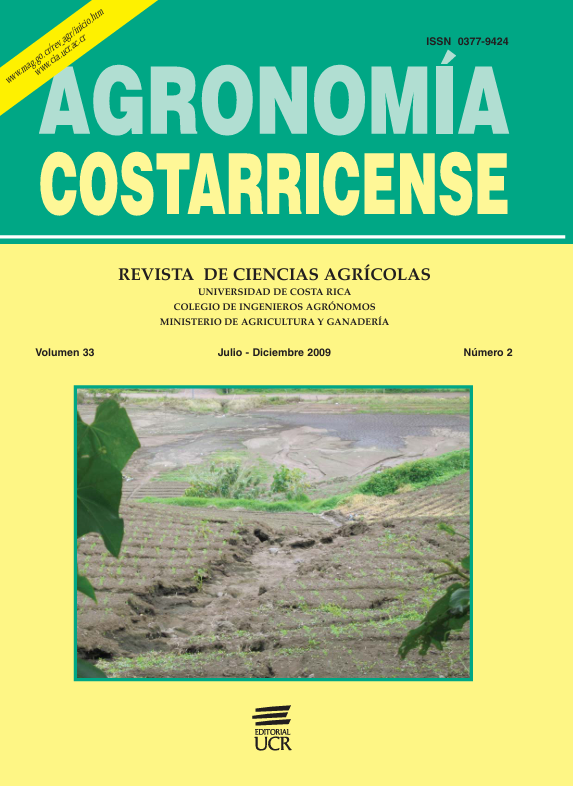Abstract
A provenance/progeny trial of V. guatemalensis in Sarapiquí, Heredia, Costa Rica was evaluated at 18 years of age. The trial included 7 provenances and 49 open-pollinated progenies originated from plus trees selected in Guatemala, Honduras and Costa Rica, and was evaluated for total height, diameter at breast height (dbh) and stem form. Significant differences between provenances and progenies were found only for dbh. On average, mean annual increments (MAI) in height and dbh were 1.64 m and 2.29 cm, respectively; while the best 25 trees showed MAI of 1.79 m in height and 2.66 cm in dbh. These growth rates, together with the good stem form shown by the trees, confirm the potential of this species for reforestation in the low elevation humid tropics. On average, all Costa Rican provenances showed higher growth than those from north Central America. In the progeny analysis, heritabilities for dbh, height, and stem form of 0.43, 0.22 and 0.12, were found, and coeficients of additive genetic variance of 9.95, 4.32 and 10.67 for these 3 variables, respectively. Assuming the selection and use as seed parents of the 25 best trees from the trial, genetic gains of 2.7-2.9 cm in dbh, 0.61-0.65 m in height, and a reduction of 0.1 0.2 units in stem form should be expected. Gains should be much higher through cloning of the best trees and use of the vegetative propagules directly for reforestation. Practical recommendations are given for the use of the selected individuals in tree improvement programs.
##plugins.facebook.comentarios##

This work is licensed under a Creative Commons Attribution-NonCommercial-NoDerivatives 4.0 International License.
Copyright (c) 2016 Agronomía Costarricense


